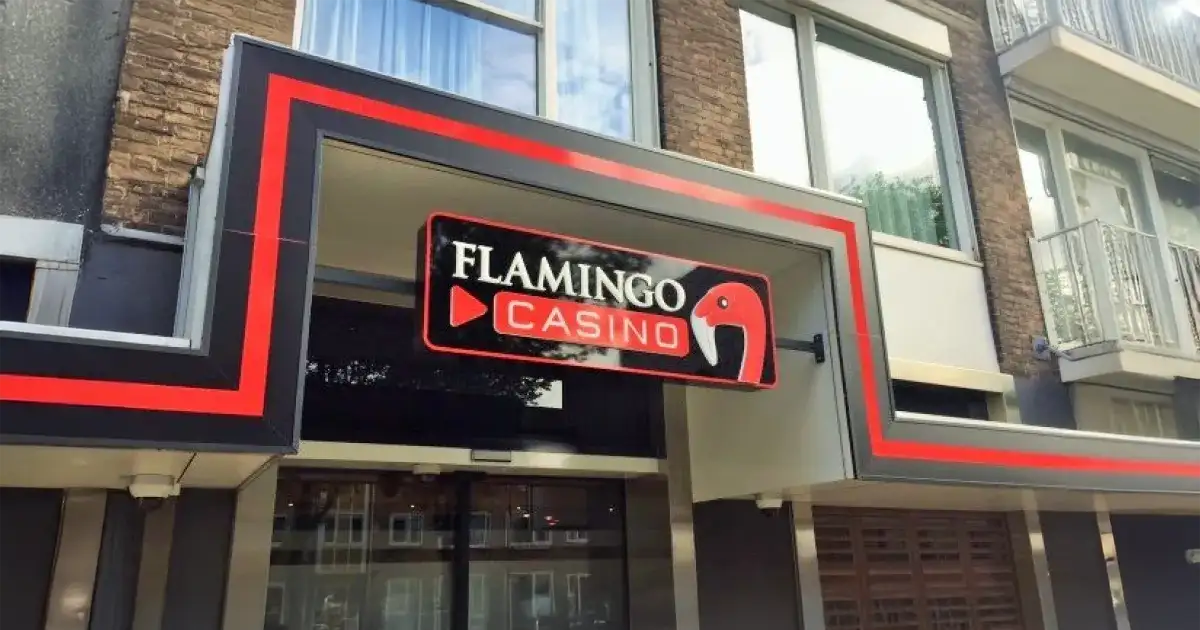Flamingo Casino disappears: a forced farewell
JVH Gaming, a major player in the Dutch gambling sector and parent company of Jack’s Casino, has announced the imminent closure of 23 physical establishments. This drastic plan affects the Flash Casino brands, which will lose almost half of its sites, and Flamingo Casino, which will disappear completely from the Dutch landscape. This decision comes in a context of economic crisis for the sector, exacerbated by successive tax increases.
A sector under fiscal pressure
Since January 1, 2024, the tax on gambling has been increased from 29.5% to 30.5%, causing significant losses in the physical casino sector. But that was just a prelude: the Dutch government is planning a new, gradual increase, which will bring this rate to 37.8% by 2026. This increase is intended to replenish the state coffers, but brings many players in the industry to their knees.
Eric Olders, CEO of JVH Gaming, expressed his concern:
“The gaming tax adds to an already unsustainable economic pressure. With rising costs, high rents, and increasingly heavy regulatory burdens, it is becoming impossible for many gaming halls to survive.”
Massive closures and consequences
JVH Gaming currently has 87 different branches, the two main brands of which are Flash Casino and Flamingo Casino. With this restructuring, approximately 26% of these establishments will close their doors, leaving hundreds of employees in uncertainty. JVH’s headquarters is not spared either, with 20 job cuts planned.
“It is an accumulation of crises that has brought us to this point: the lasting impacts of the pandemic, rising energy prices, and now this crushing taxation.”
The report published by Atlas Research for the Ministry of Justice and Security only accentuates this bleak picture. According to this document, it is almost impossible for land-based casinos to achieve financial balance despite austerity measures.
Uncertain future for the gambling sector
The closure of Flash Casino branches and the total disappearance of Flamingo Casino are only the tip of the iceberg. The online market, although seen as an alternative solution, is not immune to this crisis. Recently, players such as tombola and LiveScore Bet left the Netherlands, judging the taxation too heavy to remain profitable.
However, industry players had tried to slow down this wave of restructuring. Last August, several large companies in the sector sent an open letter to the government to warn of the risks of excessive taxation. According to them, such a policy would not only lead to the closure of many rooms, but would also encourage players to turn to unregulated platforms.
Despite these warnings, the government has maintained its course, arguing that the gradual increase in the tax would give companies time to adapt. However, the figures show that there is almost no room for maneuver.
Towards a reconfiguration of the market?
The closure of JVH Gaming branches could redistribute the cards in the sector. With fewer players on the market, the remaining rooms could hope to capture a larger share of the clientele. But will this be enough to reverse the trend?
The case of Holland Casino, another giant in the sector, is also revealing: the company had to close its historic site in Zandvoort, a symbol of the difficulties that affect even the most solid operators.
The closure of 23 JVH Gaming sites represents much more than an economic adjustment. This is a wake-up call for the entire Dutch gambling industry. If the government and industry players do not find common ground, players risk turning to illegal platforms, to the detriment of regulation and security.


